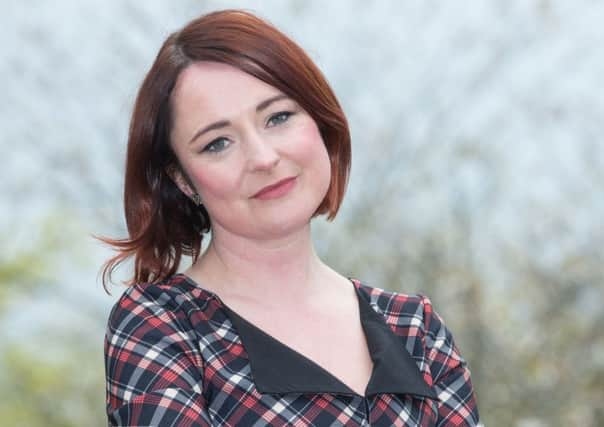Troubles-related mental illness '˜may be passed on' to next generation


Professor of Mental Health Sciences at Ulster University, Siobhan O’Neill, was speaking ahead of delivering a talk on ‘Understanding The Links Between Mental Health, Transgenerational Trauma and Peacebuilding’ at the Build Peace Conference.
The conference is taking place at the Ulster University Belfast campus between October 29 and 31.
Advertisement
Hide AdAdvertisement
Hide AdProfessor O’Neill is expected to say that understanding the effect of the Troubles related trauma, including transgenerational trauma, is vital for fostering peace building in Northern Ireland.
Approximately 213,000 adults in Northern Ireland suffer from mental health difficulties.
The impact of Troubles related trauma on those directly affected is well documented and Ulster University research shows at least half of the mental health difficulties in Northern Ireland appear to be directly related to the Troubles.
Transgenerational trauma is less well understood. This is the process where the negative mental health impacts of a traumatic event, such as PTSD, can be passed from a parent to their child, even if that child has never experienced a traumatic event.
Advertisement
Hide AdAdvertisement
Hide AdThese effects can be transmitted through the impact of trauma on how parents bond with their children, as well as parenting behaviour.
There is also some evidence that a parent’s trauma can affect the genes that are passed on to their children, impacting on their child’s biological stress response. This biological transmission has been identified in the children of Holocaust survivors.
Professor O’Neill’s talk at the Build Peace Conference will come just weeks after the closing of the public consultation on the government proposals for dealing with the past, which received around 15,000 responses.
In her response, co-authored with her Ulster University colleague Professor Brandon Hamber, Professor O’Neill called for a victim-centered, trauma informed approach to avoid re-traumatisation of the generation directly affected and their children.
Advertisement
Hide AdAdvertisement
Hide AdProfessor O’Neill said: “39 per cent of the population experienced some sort of traumatic event during the conflict and research has demonstrated the magnitude of the mental health needs of the population in Northern Ireland. However, progress on meeting those needs and providing the evidence-based treatments for complex trauma-related illnesses has been slow.
“There are increasing concerns about the intergenerational transmission of trauma and mental illness and more needs to be done to mitigate against the effects of this in Northern Ireland. This means providing resilience and mental health programmes in schools.”
She added: “Evidence-based treatments needed for complex trauma-related illnesses need to be provided for those who have suffered directly as a result of the conflict, but their families also need access to support and treatment where appropriate.
“Such treatments can help individuals make meaning from their experiences, which not only reduces their suffering, but allows them to place the experience in context and help to foster recovery.
Advertisement
Hide AdAdvertisement
Hide Ad“These processes, at both a personal and community level, can promote peacebuilding, and create the environment for peace.”
Eva Grosman, CEO of the Centre for Democracy and Peace Building, meanwhile, said: “I’m really looking forward to welcoming Professor O’Neill to the Build Peace conference. Her work on the impact of the Troubles on mental health in N. Ireland has been incredibly important. This conference is a great opportunity to showcase some remarkable projects and also to learn and exchange ideas with colleagues from across the globe.”
“Troubles related trauma has clearly had a significant impact on Northern Ireland and there is clear evidence that addressing the mental health needs of survivors is an essential component in peace building after conflict.”
The Build Peace conference will bring together practitioners, activists, academics, policy makers, artists and technologists from around the world.